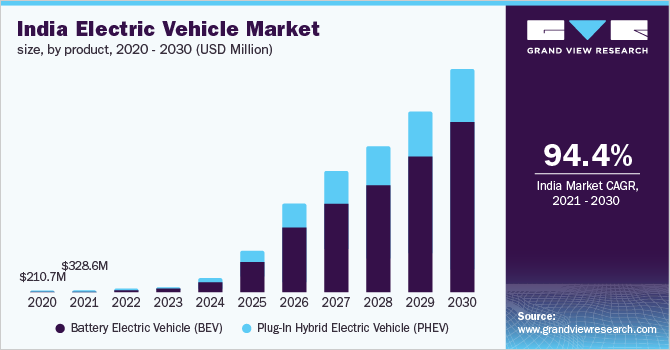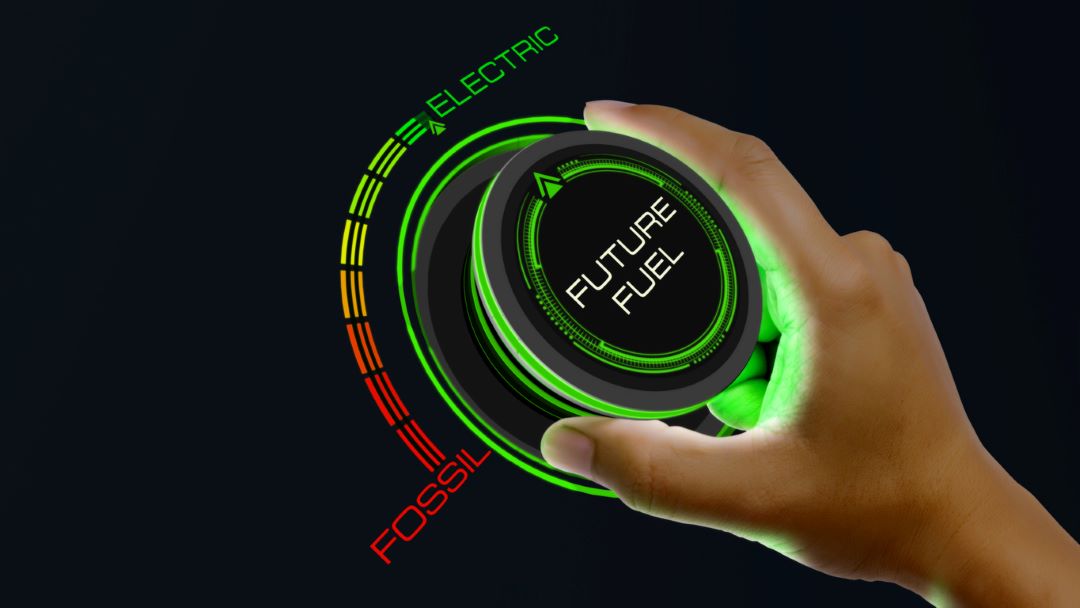Table of Contents
India’s Role in the Future of Electric Vehicles
Welcome to the world of electric vehicles (EVs), where Renovar Labs explores the global shift towards cleaner transportation. With a focus on India, one of the world’s largest automobile markets, discover how environmental concerns, technological advancements, and government policies are propelling the nation to become a major player in the global EV landscape. Explore more in this EV blog.
Advantages of Electric Vehicles in India
The adoption of EVs in India offers several advantages, including:
- Environmental Benefits: EVs produce zero tailpipe emissions, contributing to cleaner air & reduced greenhouse gas emissions. This feature is particularly significant in India, where air pollution is a major health concern.
- Reduced Oil Dependency: India relies heavily on imported oil, making it vulnerable to global oil price fluctuations. The transition to EVs will reduce this dependency and enhance India’s energy security.
- Economic Growth: The EV industry has the potential to create significant employment opportunities and boost economic growth in India.
The History of Electric Vehicles in India
The concept of EVs in India dates back to the early 1900s, with the first recorded electric car being introduced in 1901. However, the development of EVs in India remained slow due to technological limitations and a need for more infrastructure.
In recent years, the Indian government has taken several initiatives to promote the adoption of EVs, including Electric Vehicle Tax Exemption, the National Electric Mobility Mission Plan (NEMMP) and the Faster Adoption & Manufacturing of (Hybrid &) Electric Vehicles (FAME) scheme. These initiatives have helped to stimulate the growth of the EV industry in India.
Charging Ahead: Electric Vehicle Projects
Several EV projects are underway in India, including:
- Public Charging Infrastructure: The government is investing in developing a nationwide network of public charging stations to address range anxiety and encourage EV adoption.
- Battery Manufacturing: India aims to become a major hub for battery manufacturing, with several companies setting up production facilities in the country.
- Research and Development: Indian research institutions are developing new EV technologies, such as advanced battery chemistries and lightweight materials.
Assessing India’s Preparedness for Electric Vehicles
India is still in the early stages of EV adoption, and several challenges must be addressed to achieve widespread adoption. These challenges include:
- High Upfront Costs: EVs are currently more expensive than gasoline-powered vehicles, making them less affordable for many consumers.
- Limited Charging Infrastructure: The lack of a widespread charging infrastructure is a major deterrent for potential EV buyers.
- Battery Technology: Battery technology needs to improve regarding range, charging time, and cost to make EVs more attractive to consumers.
Is India Ready for Electric Vehicles?
Despite the challenges, India can become a major player in the global EV market. The country has a large and growing automotive market, a strong manufacturing base, and a supportive government policy environment.
However, India must address the challenges mentioned above to realise its EV potential fully. It will require continued government support, investment in charging infrastructure, and advancements in battery technology.
The Significance of Electric Vehicles in India
The adoption of EVs in India is not just about reducing pollution and improving energy security; it is also about creating a sustainable and equitable transportation system for the future. EVs have the potential to provide affordable, clean, and reliable transportation for millions of Indians.
The Future Scope of Electric Vehicles in India
The future of EVs in India is bright. The government is committed to promoting EV adoption, and the industry is rapidly evolving. With continued investment and innovation, EVs could become the dominant mode of transportation in India in the coming decades.

Social and Environmental Importance of Hybrid and Electric Vehicles
The adoption of EVs will have a significant positive impact on India’s environment and society. EVs will reduce air pollution, improve public health, and reduce greenhouse gas emissions. They will also create new jobs and boost economic growth.
Challenges Faced by EV Technology in India
Despite the potential of EV future in India, several challenges need to be addressed to accelerate their adoption in India. The challenges faced by EV technology in India are:
- High Battery Costs: The cost of batteries is a major factor in the high upfront cost of EVs.
- Range Anxiety: Consumers are concerned about the range of EVs, particularly with the limited availability of charging stations.
- Lack of Awareness: Many consumers still need to learn about the benefits of EVs and how they work.
Overcoming Hurdles in India
To overcome these hurdles, India needs to focus on:
- Reducing Battery Costs: The government can provide subsidies and incentives to reduce the cost of batteries.
- Expanding Charging Infrastructure: The government and private companies need to invest in building a nationwide network of charging stations.
- Raising Awareness: The government and EV manufacturers
Closure
In conclusion, adopting electric vehicles in India promises cleaner air, energy security, economic growth, and sustainable transportation. While challenges exist, India’s determination to overcome them, coupled with a growing awareness among consumers, paints a promising picture for the future of electric vehicles in the country. It’s not just a mode of transportation; it’s a step towards a greener, brighter future for all.
As part of this brighter future, Renovar Labs, a leading battery recycling company, plays a vital role in ensuring that the transition to electric vehicles is not only eco-friendly but also sustainable. Through responsible battery recycling, Renovar Labs contributes to reducing environmental impact & promoting the circular economy, making every step in India’s EV journey a greener one. Join us to be an integral part.
FAQ
Are Electric Vehicles (EVs) Popular in India?
Yes, the popularity of electric vehicles is on the rise in India due to their environmental benefits & government incentives, highlighting the growing importance of electric vehicles in the country.
How Does India Prepare for Electric Vehicles?
India is preparing for electric vehicles through initiatives like the Faster Adoption & Manufacturing of (Hybrid &) Electric Vehicles (FAME) scheme, aiming to create a robust EV ecosystem.
What Are the Advantages of Electric Vehicles in India?
Electric vehicles offer advantages such as reduced pollution, energy security, and economic growth, underscoring their importance in India’s sustainable future.
Is Charging Infrastructure Ready in India for EVs?
India is expanding its charging infrastructure to support the growing EV market, ensuring convenience and addressing one of the key challenges.
How Can India Overcome EV Challenges?
To overcome challenges, India can focus on reducing battery costs, expanding charging networks, and raising awareness about the importance of electric vehicles for a cleaner and greener nation.
What Is the Importance of Electric Vehicles in India?
Electric vehicles are vital for India, promoting cleaner air, lower emissions, energy security, and economic growth, aligning with the nation’s environmental and financial objectives.
Why Is Battery Recycling Important for Electric Vehicles?
Battery recycling is crucial for electric vehicles as it helps recover valuable materials, reduce environmental impact, and promote a sustainable, circular economy.


